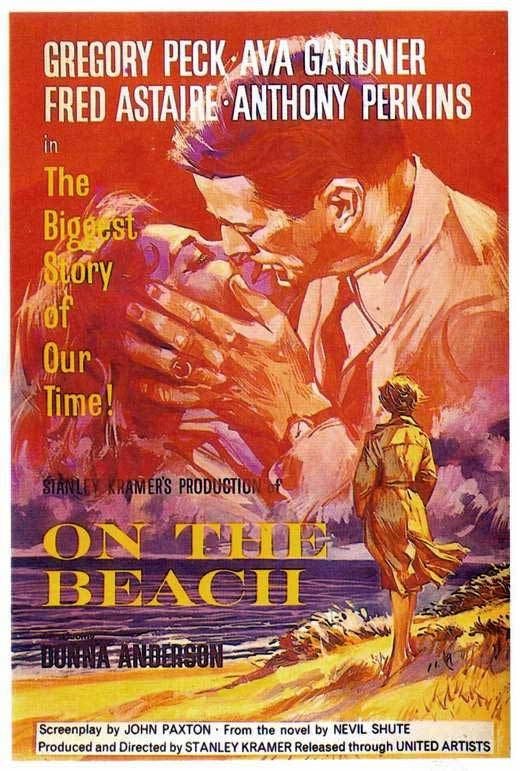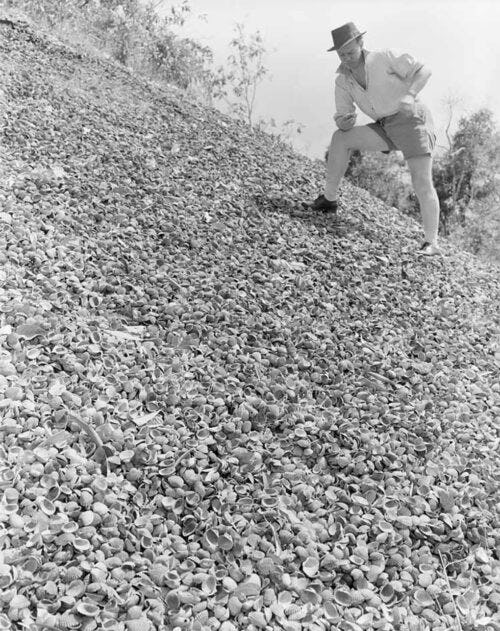At First Glance
Fiona Murphy • 13 May 2022
With just a glance we make judgements about people, places, objects. We can’t help it. Our brains work with astonishing speed to gather, categorise and synthesise new information with our existing memories, values and feelings. For a process that occurs in mere milliseconds, research shows that first impressions can be difficult to rework or erase. Instead they often linger, even deepen.
The writing in this week’s edition of The Circular challenges perceptions of the familiar and the known. Each writer invites you to hold your attention beyond that first glance.

Raise Your Needles: In Defence of Public Knitting
Aleesha Paz, Sydney Review of Books, June 2019
At the beginning of each semester Vladimir Nabokov would ban his students from talking, smoking and knitting in class.
Nabokov’s quote captures one of the main complaints against knitting in public: that it’s rude to do so when others are around, whether it’s because the assumption is that the knitter isn’t paying attention, that it implies boredom, or that it’s distracting to others.
Aleesha Paz defends public knitting by skilfully weaving together thoughts about art, politics and activism.

Woolgathering
Alice Bishop, NGV Magazine, May 2021
Alice Bishop contemplates how becoming lost in thought can help us reconnect with ourselves and the world.
Research has shown that we daydream less as we age, yet that our brains are more active when we let our minds wander, sharpening them as essential, lifelong tools.

A Questionable Survey of Suburban Eucalypts
Uthpala Gunethilake, Island
Uthpala Gunethilake begins to reconsider her first impressions of Australia, one tree at a time.
I’ve lived in Australia twenty years and never before been antsy about not being able to call a gum tree by its name. I haven’t always found Australian flora so beguiling. My mother and I once took the train from Sydney to Melbourne and nearly died of boredom. Accustomed to the glowing green of tropical trees, as though lit from within, we found the bush through country Victoria and New South Wales utterly dull. I’ve adjusted my view now. It takes time.
The Mystery of the Messy Notebooks
Christine Kenneally, Slate, April 2010
While Agatha Christie was known for her meticulously taut murder mysteries, Christine Kenneally learns about Christie’s truly chaotic approach to crafting a narrative.
What’s more, in between ominous scraps like 'Stabbed through eye with hatpin' and 'influenza depression virus – Stolen? Cabinet Minister?' are grocery lists: 'Newspapers, toilet paper, salt, pepper…' There was no clean line between Christie’s work life and her family life. She created household ledgers, and scribbled notes to self.

Pattern and Forecast (Vol. 5)
Josephine Rowe, The Believer, March 2019
Josephine Rowe considers the accelerated rate of climate change and how, someday soon, this moment in time will be considered the 'good old days'.
On blood-warm evenings when the air is sultry with salt and magnolia and two kinds of jasmine, people gather along the shoreline; sprawls of families and friends backlit by the just-slipped sun, children wading out into an ocean as flat and lustrous as liquid mercury. All of this like a memory of lost footage, the scene of some Rapture or other.

Object and Spirituality: Building on Country
Alison Page, Foreground, May 2021
In an extract from Alison Page and Paul Memmott’s book, Design: Building on Country, Alison Page details how Aboriginal design principles have 'respect for Country at its core'.
Cities like Sydney are lacquered with so many impermeable layers of Western thinking that architects, designers and builders must decide how each new layer can dig below the surface and reveal the original story of Country. How can we, as designers, pick the scabs and allow the country to breathe again?
By the Guest Editor: Discrimination and the Body
Fiona Murphy, Griffith Review, April 2018
This edition of The Circular has been curated by Fiona Murphy. To close, we’d like to share her essay on how Australia’s migration policy discriminates against people with disabilities. At first glance, the selection criteria may seem fair compared to the racist legislation of previous years. But:
We replaced the White Australia policy with the Able Australia policy. The ableism agenda is not hidden. It sits boldly in the legislation. The Migration Act 1958 is exempt from the Disability Discrimination Act 1992. Discrimination against disability is entirely lawful. In fact, it is routine.
(Note: this essay will be out from behind the paywall for the next two weeks. Many thanks to the Griffith Review.)
Fiona Murphy is an award-winning essayist. Her work has appeared in The Guardian, Griffith Review, Overland, Kill Your Darlings, The Big Issue, among many other outlets. Her memoir, The Shape of Sound, explores her experiences with deafness.